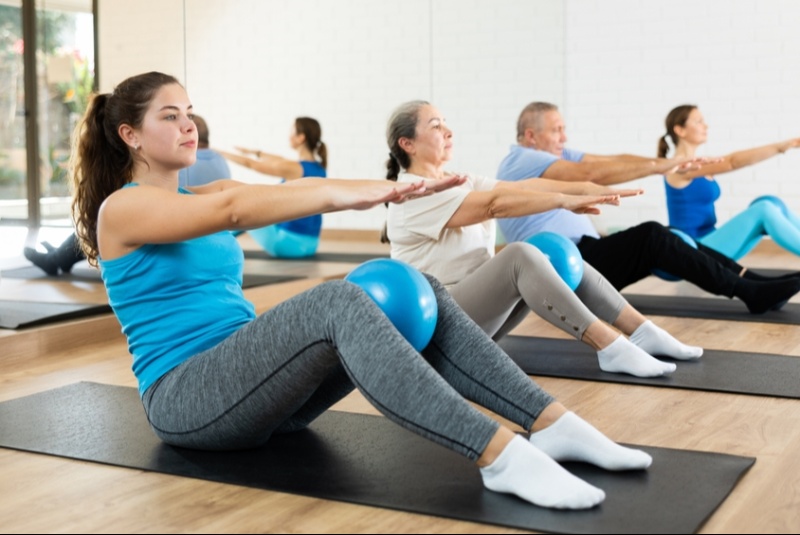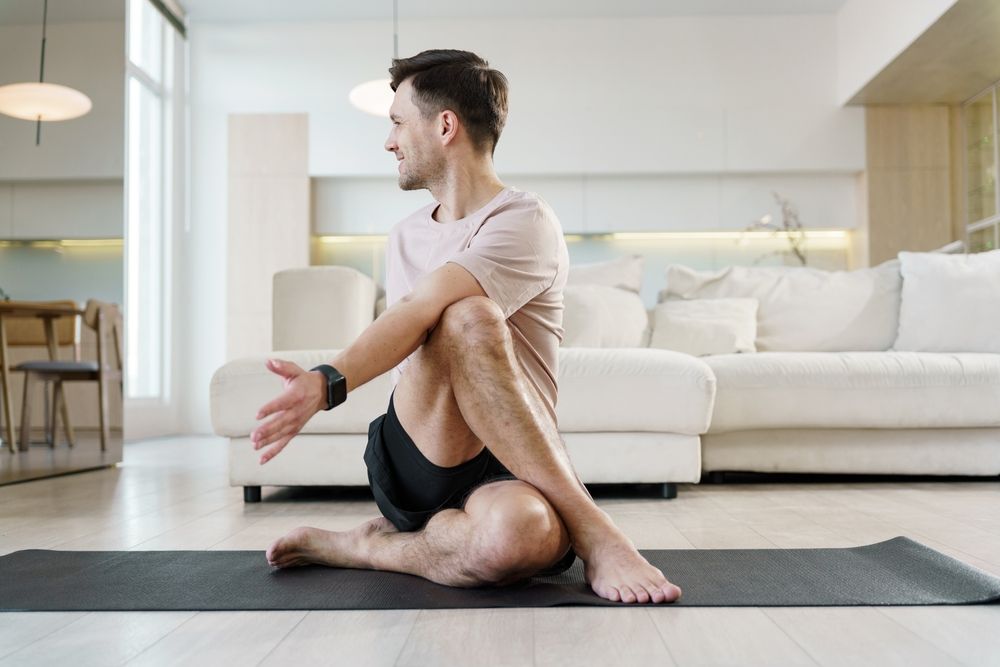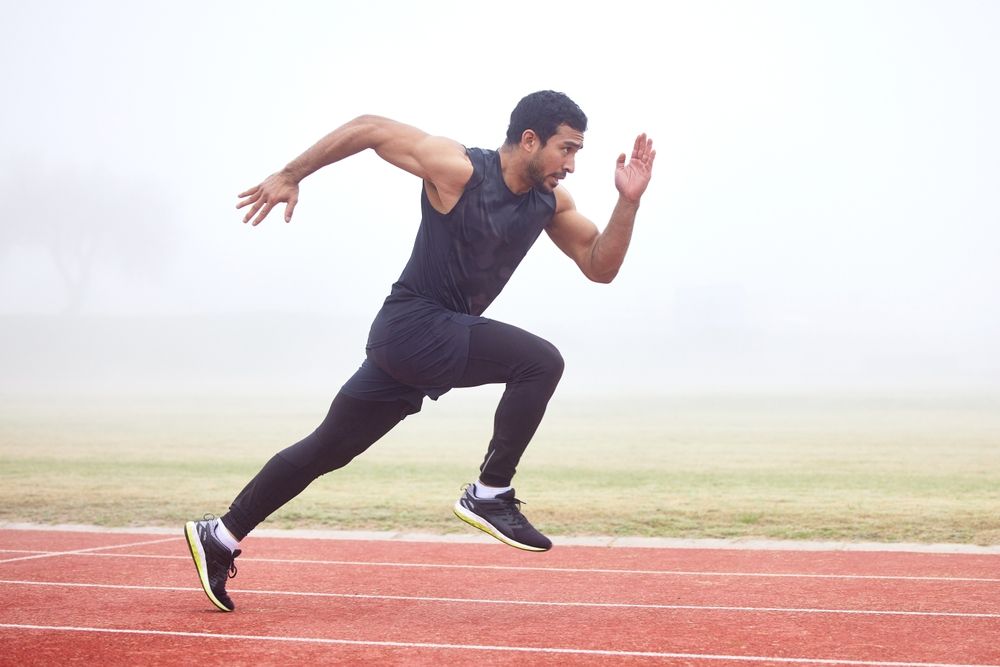Pilates, a low-impact exercise method developed by Joseph Pilates in the early 20th century, has become a popular choice for those looking to build strength, flexibility, and overall body awareness. While often associated with a strong core, Pilates offers a comprehensive approach to fitness that benefits the entire body. This guide explores the many advantages of incorporating Pilates into your fitness routine, particularly focusing on its ability to enhance core strength and flexibility. Whether you’re a seasoned athlete or a beginner, Pilates can help you achieve your fitness goals with lasting results.
Core Strength: The Foundation of Pilates
At the heart of Pilates is the emphasis on core strength, often referred to as the “powerhouse” of the body. The core includes the muscles of the abdomen, lower back, hips, and pelvis, which work together to stabilize and support the spine. Pilates exercises target these muscles through controlled, precise movements, helping to build a strong, stable core. A strong core not only enhances athletic performance but also improves posture, reduces the risk of injury, and supports overall physical health. By focusing on core strength, Pilates lays the foundation for a healthier, more resilient body.
Improved Flexibility Through Controlled Movements
Pilates is renowned for its ability to enhance flexibility through a series of controlled, flowing movements. Unlike traditional stretching, which can sometimes be static and isolated, Pilates promotes dynamic flexibility by engaging multiple muscle groups simultaneously. This approach not only increases the range of motion but also improves muscle elasticity and joint mobility. As you progress in Pilates, you’ll notice a significant improvement in your flexibility, making everyday movements easier and more fluid. Enhanced flexibility also reduces the risk of injury, particularly as we age, by maintaining the suppleness and functionality of muscles and joints.
Enhanced Postural Alignment
Good posture is essential for preventing musculoskeletal issues, and Pilates is highly effective in promoting proper postural alignment. Many Pilates exercises focus on elongating the spine, aligning the body, and correcting imbalances. By strengthening the muscles that support the spine and encouraging mindful movement, Pilates helps you develop better posture both during exercise and in daily life. Improved postural alignment not only enhances physical appearance but also alleviates stress on the spine and reduces the likelihood of developing chronic pain or injuries related to poor posture.
Increased Body Awareness and Mind-Body Connection
One of the key principles of Pilates is the development of body awareness and a strong mind-body connection. Pilates requires concentration and precision, encouraging you to focus on your breath, movement, and the alignment of your body. This heightened awareness helps you perform exercises with greater control and effectiveness, reducing the risk of injury and enhancing overall performance. Over time, this practice of mindfulness in movement translates into greater body awareness in everyday activities, improving your overall coordination and balance. The mind-body connection fostered by Pilates is a powerful tool for achieving optimal physical and mental well-being.
Low-Impact Exercise with High Rewards
Pilates is a low-impact exercise, meaning it places minimal stress on the joints while still providing significant benefits. This makes Pilates an ideal choice for people of all ages and fitness levels, including those recovering from injuries or dealing with chronic pain. Despite its gentle approach, Pilates is highly effective in building strength, flexibility, and endurance. The controlled, deliberate movements ensure that each exercise is performed with precision, maximizing results while minimizing the risk of strain or injury. The low-impact nature of Pilates allows for consistent practice, leading to sustained improvements in overall fitness and well-being.

Rehabilitation and Injury Prevention
Pilates is widely recognized for its role in rehabilitation and injury prevention. The focus on core strength, flexibility, and proper alignment helps to address and correct muscular imbalances, which are often the root cause of injuries. Many physical therapists incorporate Pilates into rehabilitation programs to help patients recover from injuries, improve mobility, and prevent future issues. The emphasis on controlled, mindful movement makes Pilates a safe and effective option for individuals looking to regain strength and stability after an injury. Whether you’re recovering from an injury or looking to prevent one, Pilates offers a gentle yet powerful approach to rehabilitation and injury prevention.
Enhanced Athletic Performance
Athletes across various sports have turned to Pilates to enhance their performance, recognizing the benefits of a strong core and improved flexibility. Pilates helps athletes develop better balance, coordination, and body control, all of which are crucial for peak performance. The emphasis on core strength translates into greater power and stability, whether you’re running, jumping, or lifting weights. Additionally, the increased flexibility and range of motion gained through Pilates can improve overall athletic performance and reduce the risk of injury. By incorporating Pilates into their training regimen, athletes can achieve a competitive edge and maintain their physical health.
Stress Reduction and Mental Clarity
In addition to its physical benefits, Pilates also promotes mental well-being by reducing stress and enhancing mental clarity. The focus on breath control and mindful movement creates a meditative aspect to the practice, helping to calm the mind and alleviate stress. The concentration required for each exercise encourages a mental break from daily worries, allowing you to focus solely on the present moment. This mental relaxation, combined with the physical benefits of Pilates, leads to a sense of overall well-being and balance. Regular practice of Pilates can improve mental resilience, reduce anxiety, and promote a positive outlook on life.
Adaptability for All Fitness Levels
One of the greatest strengths of Pilates is its adaptability to suit all fitness levels, from beginners to advanced practitioners. Pilates exercises can be modified to increase or decrease intensity based on your individual needs and goals. Whether you’re just starting your fitness journey or looking to challenge yourself further, Pilates offers a wide range of exercises and variations to keep you engaged and progressing. This adaptability makes Pilates accessible to everyone, regardless of age, fitness level, or physical limitations. The ability to customize your Pilates practice ensures that you can achieve your specific fitness goals while enjoying the numerous benefits of this versatile exercise method.
Long-Term Health Benefits
The benefits of Pilates extend far beyond the immediate physical improvements, offering long-term health advantages that contribute to overall well-being. Regular Pilates practice helps maintain a healthy weight, improve cardiovascular health, and boost immune function. The emphasis on core strength, flexibility, and balance supports healthy aging, reducing the risk of falls and promoting independence in later years. Additionally, the mental clarity and stress reduction gained through Pilates can enhance cognitive function and emotional health. By incorporating Pilates into your routine, you’re investing in a long-term approach to health and wellness that will serve you well throughout your life.
Pilates offers a comprehensive approach to fitness that enhances core strength, flexibility, and overall body awareness. By focusing on controlled movements, proper alignment, and a strong mind-body connection, Pilates provides a low-impact yet highly effective workout that benefits both the body and mind. Whether you’re looking to improve athletic performance, recover from an injury, or simply maintain a healthy lifestyle, Pilates is a versatile and adaptable exercise method that can help you achieve your goals. With its wide range of benefits, Pilates is more than just a workout—it’s a pathway to lifelong health and wellness.




